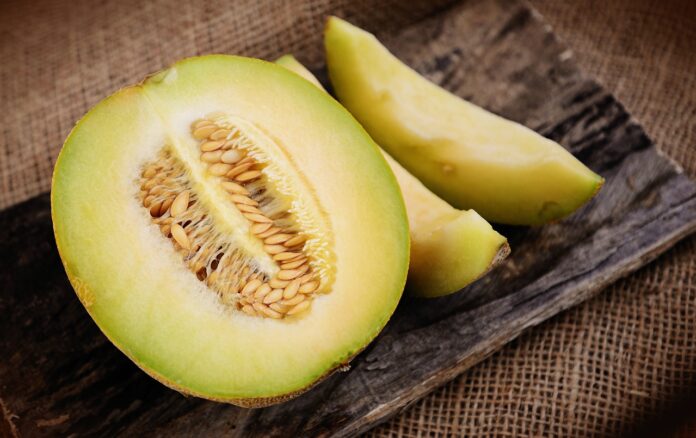Bright yellow round melons? Or perhaps elongated ones with green stripes? There are many types of melons, though some are rarely found in Russia and nearby countries. There are indeed numerous varieties of melons, developed by breeders, which have spread worldwide to places where they are popular. However, the more familiar varieties are the small round melons or the elongated “torpedoes” sold in Russian markets during summer.
Facts About Melons
- Empty Stomach Warning: It’s not recommended to eat melons on an empty stomach as it can cause digestive issues.
- Avoid with Dairy: Consuming melons before or right after dairy products is also discouraged.
- Unripe Aroma: If a melon has a slight grassy smell, it means it’s not fully ripe.
- Plant Yield: Typically, each melon plant produces between 2 to 8 melons.
- Rich in Iron: Melons are extremely rich in iron, with an iron content 17 times higher than that of milk.
- Origin: Melons originate from Central Asia, like many other crops.
- Ancient Belief: In ancient times, Arabs believed that melons were heavenly fruits that accidentally made their way to Earth.
- Royal Complaint: Once, French King Henry IV filed a lawsuit against a melon, accusing it of royal insult. The reason? The king overindulged in melons and felt unwell afterward.
- Variety Count: Currently, there are over 200 varieties of melons in the world.
- Wild Melons: Wild melons, related to their cultivated counterparts, grow in the wild mainly in Central Asian countries of the former USSR, as well as in India and surprisingly, in northern Australia.
- Ancient Cultivation: Archaeological findings suggest that melons were cultivated as far back as Ancient Egypt.
- Happiness Hormone: Substances found in ripe melons stimulate the production of serotonin, also known as the “happiness hormone,” similar to the effect of eating chocolate.
- Cleansing Properties: Due to their high fiber content, consuming melons can help cleanse the body and eliminate toxins.
- World’s Most Expensive Melon: The Japanese “Yubari King” melon is the most expensive in the world, known for its extraordinary taste, and can cost several thousand dollars per fruit.
- Global Production Leader: China ranks first in melon production, growing about 25% of the world’s melons.
- Annual Production: Globally, about 32-33 million tons of melons are produced each year.
- Weight Records: While most melons weigh no more than 8-9 kg, the official record for the heaviest melon is over 200 kg, set in 2009 in Austria.
- Exclusive Treat: In Russia during the 19th century, melons were only seen on the tables of nobles and wealthy merchants.
- Cucumber Lookalike: The fruits of the snake melon, when unripe, strikingly resemble regular cucumbers.
- Botanical Classification: Botanically, melons belong to the gourd family.
- Dried Sweetness: When dried, melons taste even sweeter than when fresh.
- Melon Day: In Turkmenistan, “Turkmen Melon Day” is officially celebrated on the second Sunday of August each year.
- Medieval Europe: Melons first arrived in Europe during the Middle Ages.
- Mystical Use: In Europe, melon seeds and flesh were used by sorcerers to make love potions.
- New World Introduction: European colonizers introduced melons to North and South America after Christopher Columbus discovered the New World.
- No Ripening After Harvest: Unlike many other fruits, melons do not ripen or become sweeter once they are picked.
- Water Content: Melons are composed of about 90% water, similar to watermelons.
- Low Calorie: One kilogram of melon flesh contains only about 30 kilocalories.
- Culinary Uses of Seeds: In India and some African countries, roasted melon seeds are used in cooking. However, scientists have found that these seeds contain substances that can negatively affect the spleen, so it’s best to avoid such snacks.
- Traditional Medicine: Almost all parts of the melon, from leaves to seeds, are widely used in traditional Chinese medicine.
